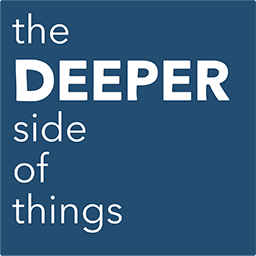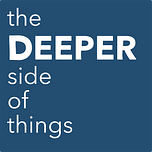Megan studied biology and secured her dream job right out of college working at a wild animal sanctuary. She’s also the first young woman in her 20s that we’ve interviewed — so early in her career and already decided she’s done with the traditional work environment.
This is also the first conversation we’ve had related to sexual harassment — a painful and yet important subject to broach.
The research shows that people are ten times more likely to leave a job due to a toxic work culture relative to compensation. As we’ve been saying, it’s no longer about money, but rather how people are treated and the meaning they derive from their work.
For a 27-year-old woman saying she’s not seeking work in her field and is instead seeking remote work, says a great deal. Her love of animals drove her to study biology and then to seek employment working with wild animals. She crisscrossed the country between two facilities and worked with others in the field who confirmed for her the demanding nature of the work as well as the consistent poor treatment of those who choose to dedicate their lives to working with animals.
Megan eventually went to the board of the non-profit she worked for with allegations but didn’t feel heard. Nothing changed, and after enduring several years of sexual harassment and a toxic work culture, she called it quits. When I asked her how she felt after she resigned, she said, “I felt this overwhelming sense of relief that I wasn’t going to have to do it anymore.”
To go deeper, I feel we need to be asking ourselves some big questions related to work. Like: Should the need to earn an income mean we must force ourselves to endure toxic work cultures or do work that feels meaningless? Should we have to submit to favoritism, prejudice, or harassment? Should we be made to feel like meaningless cogs in a wheel — just to earn a paycheck?
For me it comes back to Milton Friedman economics, the idea that businesses exist solely for the purpose of increasing shareholder return on investment. Which presupposes that employees and executives of a business work for the shareholders, not the company. This began in 1970 with an article Friedman penned for the New York Times, which had he not already been the head of the Chicago School of Economics would likely have been shot down for its faulty logic. But like so many inequities in our society that benefit a small class of powerful people, anytime someone provides a semi-cogent argument in its favor, such arguments are lauded for their brilliance and sung from hilltop to sunny hilltop until everyone accepts them blindly.
But . . .
If we are mere “assets” with an obligation to serve a company, then the concept of a business means that it’s in charge of humanity and we exist at its discretion. Sounds like slavery to me.
What if we throw that model out completely? What if companies are merely a tool, a mechanism that exist for the sake of organizing people and resources to carry out a task, fulfill a need, offer a positive change, or an enhancement for humanity.
I’m writing with a certain measure of passion because it pains me to hear so many stories of people being mistreated in the workplace. I’ve experienced it myself. Haven’t we all to some degree?
If the Great Resignation is telling us anything it’s saying, “WAKE UP!” It’s time to wake up and create a new model of work, one deeply purpose-oriented business at a time. And then another, and then another, until we’ve changed the face of work.
It’s time to stop trusting the “experts” who use funny math to justify illogical frameworks for business. We created the institution of a business. Therefore, it’s up to us to decide how it works and who it serves. But instead, with the acceptance of Milton Friedman Economics we’ve created an institution and then handed our lives over to it.
It would be as if we took out an ad that reads: “Slave seeking a master. Need to be enslaved. Not asking for terms, just an opportunity to make a consistent wage. Will take whatever abuse necessary to serve the master. Reply slave@slave dot com.”
Does this seem like hyperbole? I think not. It’s our choice what kind of businesses we wish to create and work with and for. It’s up to us to create institutions that respect all stakeholders, provide meaning, and seek to enhance not degrade humanity.
If late-stage Millennials and early-stage Gen Z’ers are resigning and choosing out so early in their working lives, then seriously, we need to listen, pay attention, and make change happen now.
Please like, comment, and share as this is how this podcast will reach a larger audience and inspire change.









Share this post